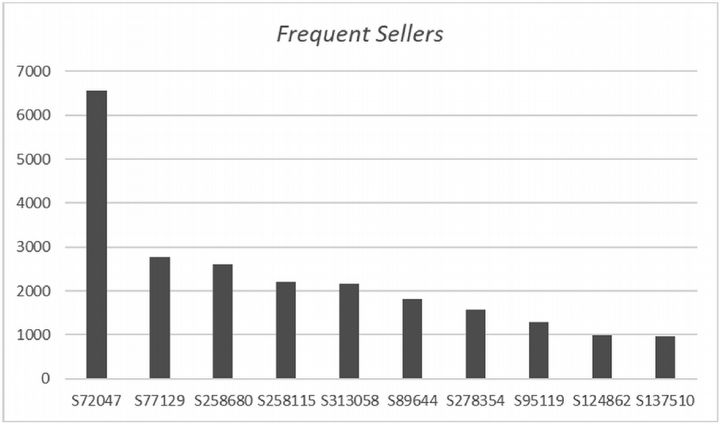Money Laundering on Steam? Researchers Point to Suspicious User Activity
A new study may confirm players' old suspicions that trading virtual items in the Counter-Strike series, among others, is a front for money launderers.

The market for virtual items in video games can allegedly be used for money laundering. This conclusion was reached by researchers Dan Cooke and Angus Marshall in an article with the revealing title Money Laundering Through Video Games: A Criminals' Playground. The text was published in the digital edition of the Forensic Science International scientific journal (via GamesIndustry.biz).
5 days of trading in CSGO
In the study, the authors looked at data regarding exchanges on the Steam Community Market, primarily item trading in Counter-Strike: Global Offensive over a 5-day period in August 2020. The goal was to determine whether the methods used to detect potential money laundering could be applied to identify suspicious transactions in the digital video game market.
So, the researchers considered factors related to the "frequency" of exchanges, including both their overall number and repeated transactions (i.e. those in which the same "goods" were exchanged for an identical amount).
Big CS traders
The most frequently traded item (unidentified by researchers) was traded over 71,000 times during this period. These transactions accounted for 14.1% of all virtual trades in CS:GO over these 5 days. Nonetheless, the authors didn't consider this as suspicious activity. Almost 3/4 of all transactions concerned the 10 most popular items. We assume that you are referring to case keys, which essentially serve as the standard currency in Counter-Strike.
The most active virtual goods traders attracted more attention. Ten top sellers (0.002%) accounted for 4.5% of exchanges during this period. The most active of them conducted more than 6,000 such transactions, which accounts for 1.3% of all item sales in CSGO during the period studied. A similar trend was observed among buyers.
The authors note that there has almost certainly occurred trade automation (read: use of bots). This would be confirmed by the number of "duplicated" exchanges: items sold for the same amount to the same buyer. Furthermore, researchers have also noted that some of the more active traders frequently engage in this type of transaction.

Most active CSGO sellers traded thousands of items in a matter of days. Source: Forensic Science International.
Money laundering or trade conspiracy?
Based on these and other data, researchers claim that the more suspiciously active users either manipulate the market or there is "some other activity" - although it doesn't necessarily have to be about money laundering. In the future, the authors suggest examining the value of objects.
Users: 72047, 258680,77129 and 258115 all appear within the top 10 most frequent buyers and sellers on the platform indicating that either manipulation of the marketplace or some other activity may be occurring with these sellers for them to be both buying and selling with such high frequency.
While this doesn't yet confirm the actual money laundering through Steam, such accusations against the platform have been surfacing for quite some time. Even apart from "banana" titles, users noticed strange transactions: items that were worth a few cents or a maximum of several dozen dollars suddenly found a buyer paying several hundred dollars for them.
Such a procedure can be noticed even in CS 2 (via Reddit). Is it just the activity of scammers, mass bot trading, or just dirty money? Maybe someone will show more interest in this in the near future.
0

Author: Jacob Blazewicz
Graduated with a master's degree in Polish Studies from the University of Warsaw with a thesis dedicated to this very subject. Started his adventure with gamepressure.com in 2015, writing in the Newsroom and later also in the film and technology sections (also contributed to the Encyclopedia). Interested in video games (and not only video games) for years. He began with platform games and, to this day, remains a big fan of them (including Metroidvania). Also shows interest in card games (including paper), fighting games, soulslikes, and basically everything about games as such. Marvels at pixelated characters from games dating back to the time of the Game Boy (if not older).
Latest News
- End of remote work and 60 hours a week. Demo of Naughty Dog's new game was born amid a crunch atmosphere
- She's the new Lara Croft, but she still lives in fear. Trauma after Perfect Dark changed the actress' approach to the industry
- „A lot has become lost in translation.” Swen Vincke suggests that the scandal surrounding Divinity is a big misunderstanding
- Stuck in development limbo for years, ARK 2 is now planned for 2028
- Few people know about it, but it's an RPG mixing Dark Souls and NieR that has received excellent reviews on Steam, and its first DLC will be released soon


